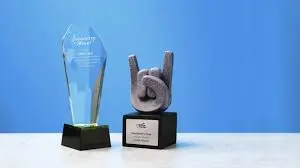In today’s fast-paced educational environment, students are constantly on the lookout for effective study techniques that can help them retain vast amounts of information efficiently. One timeless tool that has proven its worth repeatedly is the humble flashcard. From elementary school to postgraduate studies, flashcards remain a go-to method for students aiming to enhance their memory and achieve academic success. In this article, we will explore the benefits of using flashcards, offer tips on how to maximize their effectiveness, and discuss the best strategies for how to memorize flashcards.
The Benefits of Flashcards
Flashcards are simple yet powerful tools that provide numerous benefits:
Active Recall: Unlike passive reading, flashcards promote active recall, which involves actively stimulating memory during the learning process. This method has been shown to enhance long-term retention of information.
Spaced Repetition: Flashcards are ideal for spaced repetition, a technique where information is reviewed at increasing intervals. This method helps to consolidate memory and reduce the forgetting curve.
Portability: Flashcards are compact and easy to carry, allowing students to review their notes anytime and anywhere, whether they’re on a bus, waiting in line, or during a break.
Customization: Students can create personalized flashcards tailored to their specific learning needs, making the study process more targeted and efficient.
How to Create Effective Flashcards
To get the most out of flashcards, it’s essential to create them effectively. Here are some tips:
Use Simple, Clear Language: Each flashcard should focus on one concept or question, using concise and clear language. Avoid cramming too much information onto a single card.
Incorporate Images and Diagrams: Visual aids can significantly enhance memory retention. Where applicable, include images, diagrams, or charts to complement the written information.
Categorize Your Cards: Group flashcards by topic or subject to make it easier to review related information together. This organization helps to create a structured study routine.
Utilize Both Sides: On one side of the flashcard, write a question or a term, and on the other side, write the answer or definition. This format encourages active recall and self-testing.
Strategies for Using Flashcards
Creating flashcards is only the first step; using them effectively is where the real magic happens. Here are some strategies to help you master the art of using flashcards:
Shuffle Regularly: To avoid memorizing the order of the cards rather than the content, shuffle your deck frequently. This approach ensures you can recall information randomly, as required in real-life scenarios.
Practice Daily: Consistency is key to effective studying. Set aside dedicated time each day to review your flashcards. Even short, regular sessions can yield significant results over time.
Use Spaced Repetition: Implement a spaced repetition system (SRS) to review flashcards at strategically increasing intervals. This method reinforces learning and helps transfer information to long-term memory.
Teach Someone Else: Explaining concepts to others is a powerful way to solidify your understanding. Use your flashcards to teach a friend or study group, as this reinforces your knowledge and highlights areas needing further review.
How to Memorize Flashcards
Understanding how to memorize flashcards effectively is crucial for maximizing their potential. Here are three steps to guide you through this process:
Active Engagement: Engage actively with each flashcard by reading it aloud, visualizing the concept, or writing it down. This multi-sensory approach helps reinforce memory.
Spaced Repetition: As mentioned earlier, spaced repetition is a game-changer for memory retention. Utilize apps like Anki or Quizlet, which are designed to optimize spaced repetition schedules and track your progress.
Self-Testing: Regularly test yourself using your flashcards. Set aside a portion of your study time for self-assessment, and focus on cards that you find challenging. Over time, you will notice significant improvements in your recall abilities.
Integrating Flashcards into Your Study Routine
To fully benefit from flashcards, integrate them seamlessly into your overall study routine. Here are some tips on how to do that:
Start Early: Begin creating and using flashcards at the start of a new course or topic. This proactive approach helps you stay on top of the material and avoid last-minute cramming.
Mix with Other Methods: While flashcards are powerful, they should not be your only study tool. Combine them with other methods like summarizing notes, participating in discussions, and practicing past exams for a well-rounded approach.
Set Goals: Establish clear study goals and milestones to keep yourself motivated and on track. Whether it’s mastering a specific number of flashcards each week or improving your quiz scores, having tangible objectives helps maintain focus.
Review Regularly: Make flashcard review a consistent part of your study schedule. Regular, spaced reviews prevent information from being forgotten and ensure continuous reinforcement of knowledge.
Conclusion
Flashcards are a versatile and effective tool for students at all levels of education. By promoting active recall, facilitating spaced repetition, and allowing for personalized study experiences, flashcards can significantly enhance academic performance. Understanding how to memorize flashcards is crucial for maximizing their potential, and integrating them into a structured study routine can yield impressive results. Embrace the power of flashcards, and you might just find that they become your secret weapon for academic success.








